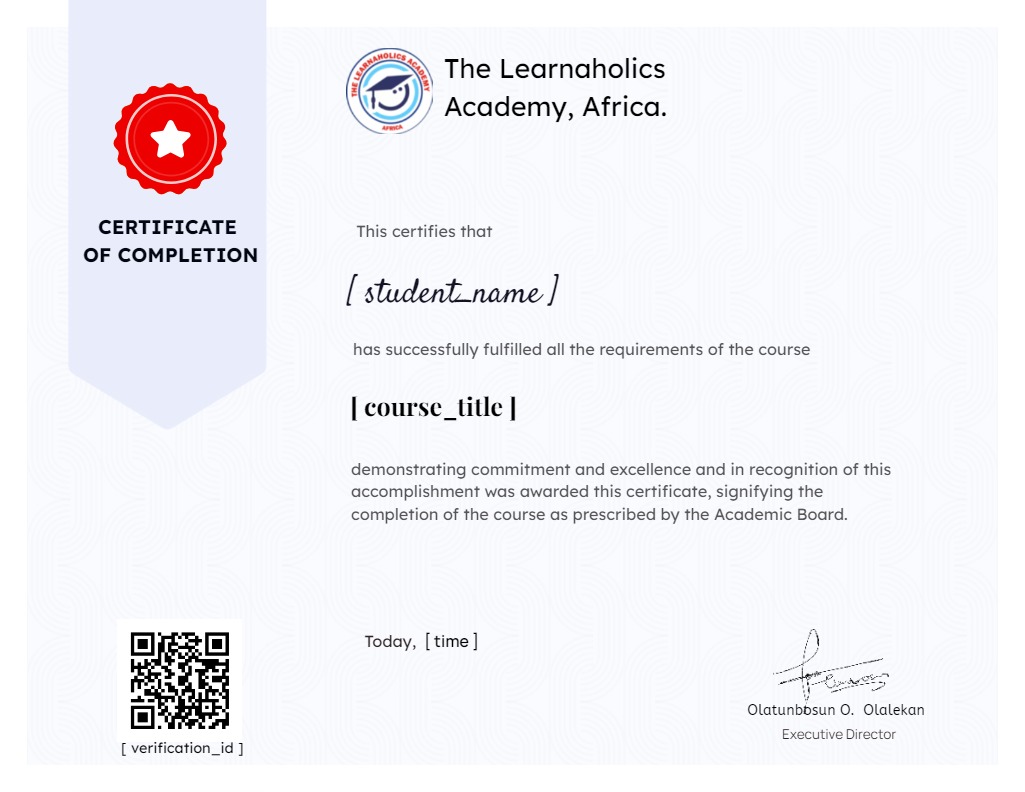Foundations of Contemporary Parenting
By Learnaholic
Categories: Premium Short Courses

About Course
This course explores the evolving challenges and opportunities of raising children in today’s fast-paced and ever-changing world. It delves into key topics such as understanding modern parenting paradigms, navigating the digital landscape, fostering emotional intelligence, and balancing work and family life. The course also emphasizes the importance of inclusive parenting, positive discipline, and preparing children for an uncertain future. Through practical strategies and insights, parents will gain the tools and knowledge needed to nurture resilient, independent, and confident children, ready to thrive in a complex and dynamic world.
What Will You Learn?
- How to adapt your parenting style to the evolving challenges of modern society and understand the shifts in parenting paradigms over time.
- Practical strategies for managing your child's digital exposure, promoting healthy technology use, and ensuring online safety.
- Techniques to cultivate emotional intelligence in your children, helping them develop empathy, self-awareness, and strong interpersonal skills.
- Effective approaches to balancing work and family life, allowing you to create a harmonious home environment while meeting professional responsibilities.
- Methods for fostering resilience, independence, and confidence in your children, preparing them to navigate an uncertain and rapidly changing future.
Course Content
Foundations of Contemporary Parenting
-
Understanding the Shifts in Parenting Paradigms
00:00 -
Navigating Parenting in the Digital Age
00:00 -
Emotional Intelligence in Parenting
00:00 -
Inclusive Parenting in Diverse Families
00:00 -
Positive Discipline and Setting Boundaries
00:00 -
Raising Independent and Confident Children
00:00 -
Balancing Work and Family Life
00:00 -
Preparing Children for an Uncertain Future
00:00
Reflective Assessment
-
Assessment
Earn a certificate
Add this certificate to your resume to demonstrate your skills & increase your chances of getting noticed.

Student Ratings & Reviews

No Review Yet




